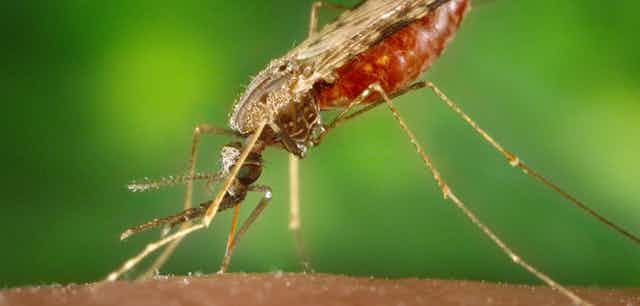Nearly two-thirds of the world’s population are at risk from vector-borne diseases – diseases transmitted by bites from infected insects and ticks. The most deadly of these is malaria which causes nearly 600,000 deaths each year, mostly in young children in Africa. Much has been done to tackle this disease, but research we’ve published in Trends in Parasitology suggests that the poorly designed field trials are causing a massive waste of financial resources.
Over the past ten years there have been massive declines in malaria due to the scaling-up of control programmes using long-lasting insecticide treated nets and spraying of insecticides inside the house, along with advances in diagnosis and treatment. However, a number of challenges to effective control exist, including insecticide resistance.
Other vector-borne diseases, dengue and chikungunya are increasing globally; high-profile outbreaks were reported in the Caribbean in 2014 and Brazil earlier this year. These debilitating diseases have no effective treatment – and currently the only method of prevention is by controlling the mosquitoes, mainly through treating or removing containers such as water butts which provide attractive breeding sites.
It is widely recognised that new tools to control mosquitoes are urgently needed to control these diseases. These tools must follow a lengthy development process to ensure they are both effective and safe. Before new interventions can be used in the field, the evidence from laboratory studies and field trials needs to be reviewed by policy-making committees at the World Health Organisation.
Repeated problems
Through our research we have identified repeated problems with vector control field trials which mean that the results of many studies are invalid or biased. The problem of waste in research design and conduct has been highlighted in a Lancet series in 2014 and it is estimated that an astonishing 85% of research investment is wasted due to poor design, conduct or reporting of studies, or studies that ask the wrong question. We estimate that the average malaria field trial costs about £500,000 to £1m so this represents a massive waste of financial resources.
A key problem we identified is that many vector control studies assess the ability of the intervention to kill or reduce the insect but do not look at how effective these interventions are in reducing disease and saving people’s lives. Evidence of an effect on people’s health is essential to demonstrate that methods for controlling insects have public health benefits.

For example, a review looking at how effective fish that eat mosquito larvae can be in controlling malaria did not find any studies with health outcomes and was unable to say if reductions in larvae translated into fewer cases of malaria in people.
A large number of vector control trials are also not randomised – so participants are not randomly allocated to receive intervention or control – which can result in bias. Making sure that participants and healthcare providers are not aware of which intervention they have received (blinding) can prevent bias. For example, healthcare providers may be more likely to diagnose malaria if they are aware that a patient is in the control group of a vector control study, compared to a patient who has received a new type of long-lasting insecticide treated net.
Many of the issues we identified could be easily remedied, for example through the use of standardised health outcomes to assess the effectiveness of new interventions, randomisation and blinding. These are features of clinical trials that are conducted as standard when testing new drug treatments, but are often overlooked for vector control trials.
A possible reason for this is that medical entomologists (people who study disease vectors) have typically worked in silos and are not familiar with rigorous methods for designing intervention studies. Many trials have been also conducted in resource-limited settings where often the urgent need for disease control means that research design is not a priority.
In future, we recommend the definition of clear guidelines to support the rigorous design and conduct of vector control trials and increased training for medical entomologists. This is imperative, not only to prevent waste of human and financial resources, but also to speed up the roll-out of new tools in the field so we can save more lives from these types of diseases.

